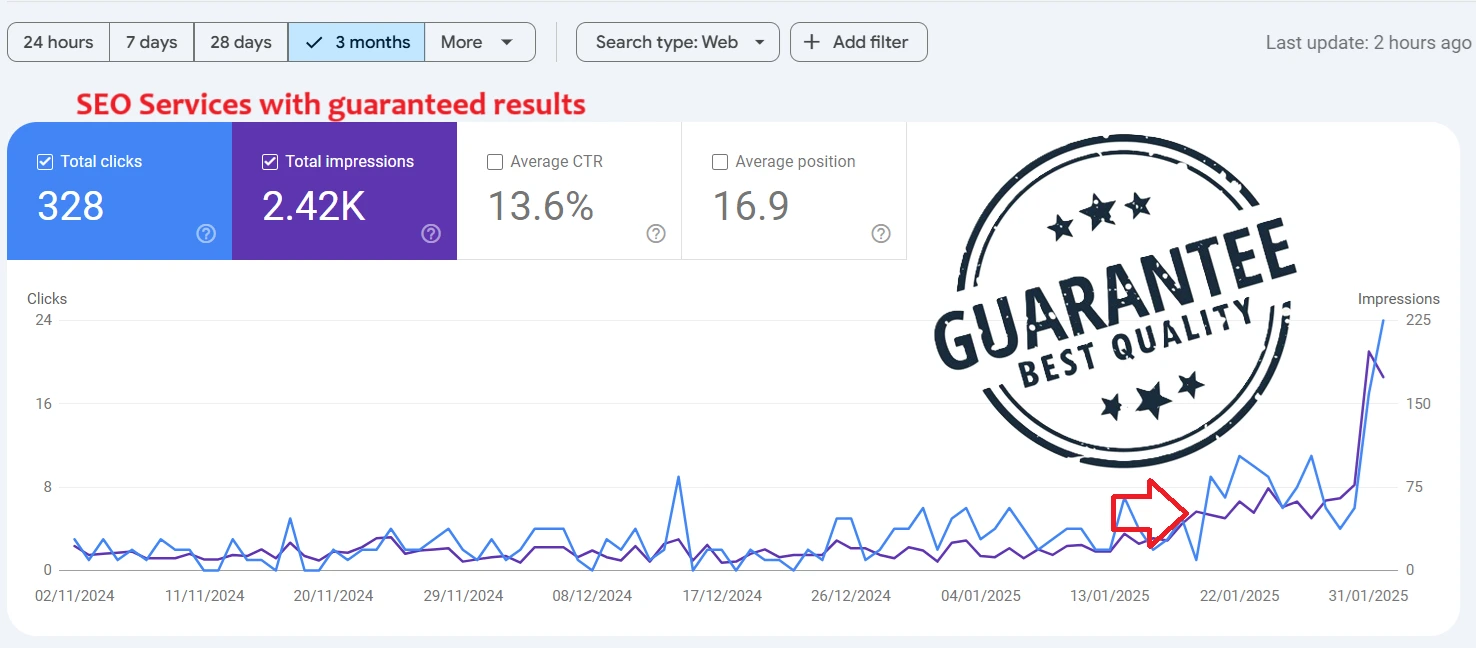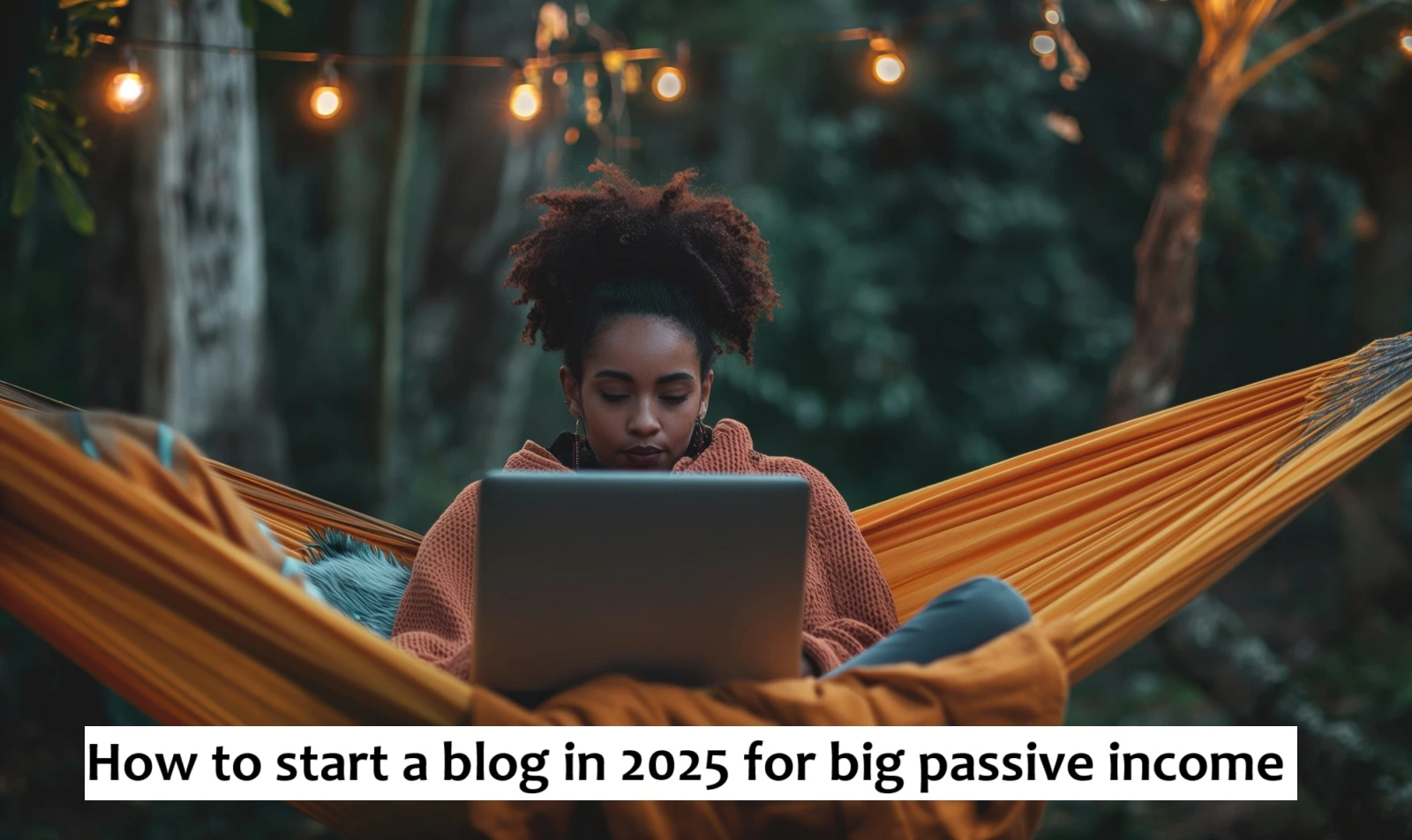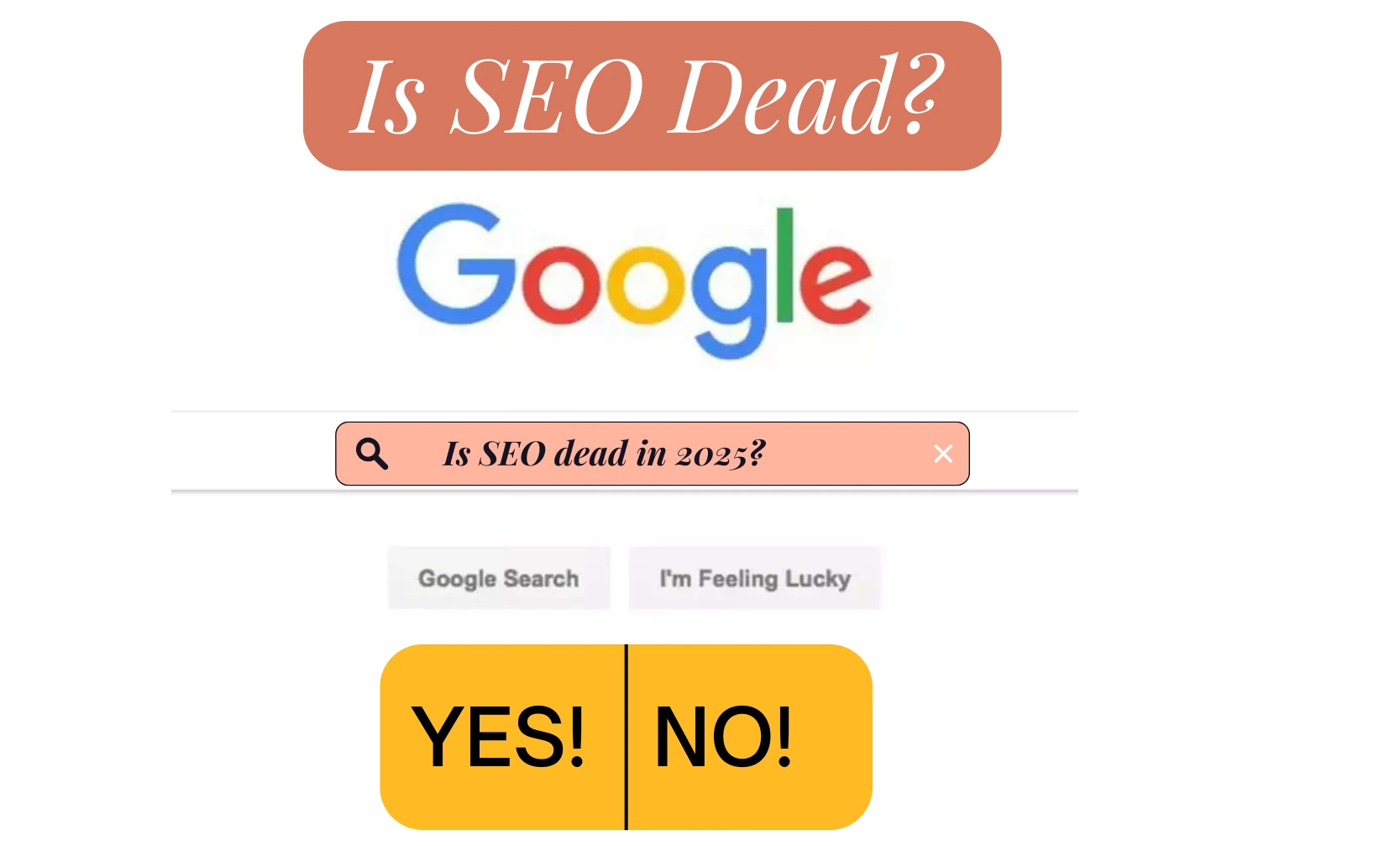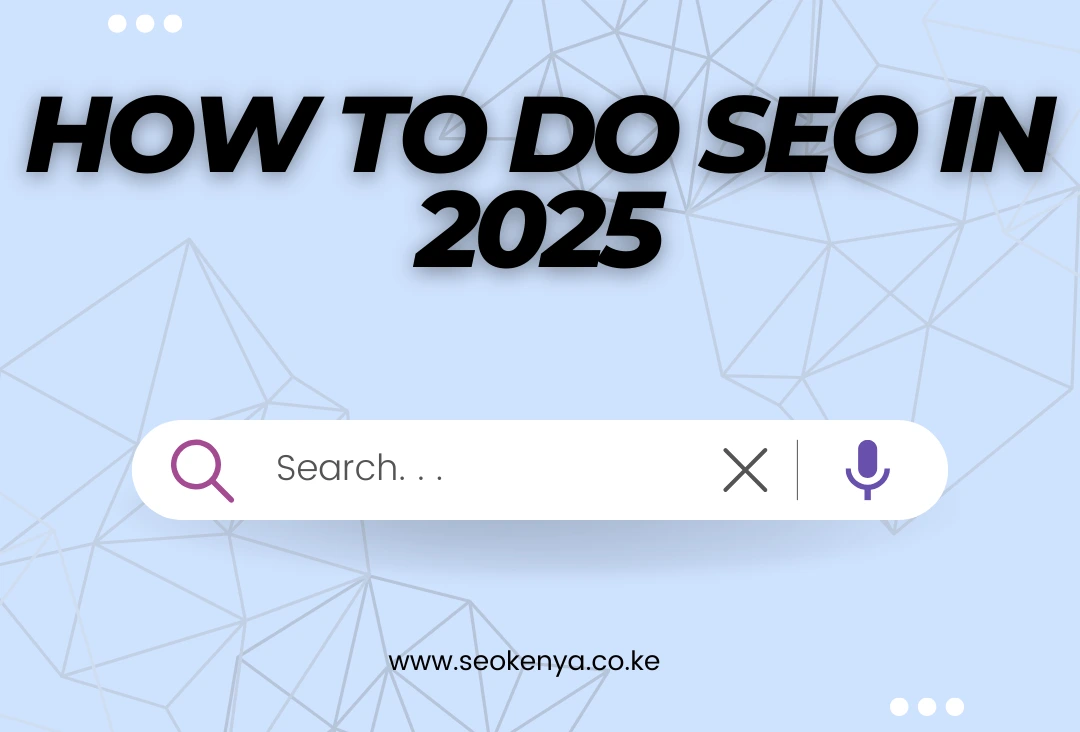
Search Engine Optimization (SEO) in 2025 is the practice of enhancing a website’s visibility not only on traditional search engines like Google but also on AI-powered platforms such as Google’s AI overviews, ChatGPT, and Perplexity.
SEO 2025 involves creating content and structuring websites to cater to the algorithms and requirements of both conventional search engines and generative AI tools that synthesize information for users directly.
The definition of SEO has evolved to reflect the significant shifts in search behavior driven by artificial intelligence. In the past, SEO primarily focused on:
- Optimizing for Google’s search engine.
- Targeting short- and long-tail keywords to attract clicks to web pages.
- Driving traffic through organic search rankings and backlinks.
However, with the rise of AI-driven search engines and tools, SEO now emphasizes Generative Engine Optimization (Geo)—strategies designed to ensure visibility in AI-generated results.
This change acknowledges that modern users often find answers directly in AI overviews or conversational AI tools without visiting websites, transforming how businesses must approach search visibility.
In 2025, SEO is about being present wherever searches happen—be it on Google, AI tools, or new generative platforms—making adaptability essential for staying competitive.
What SEO Was vs. What SEO Is in 2025
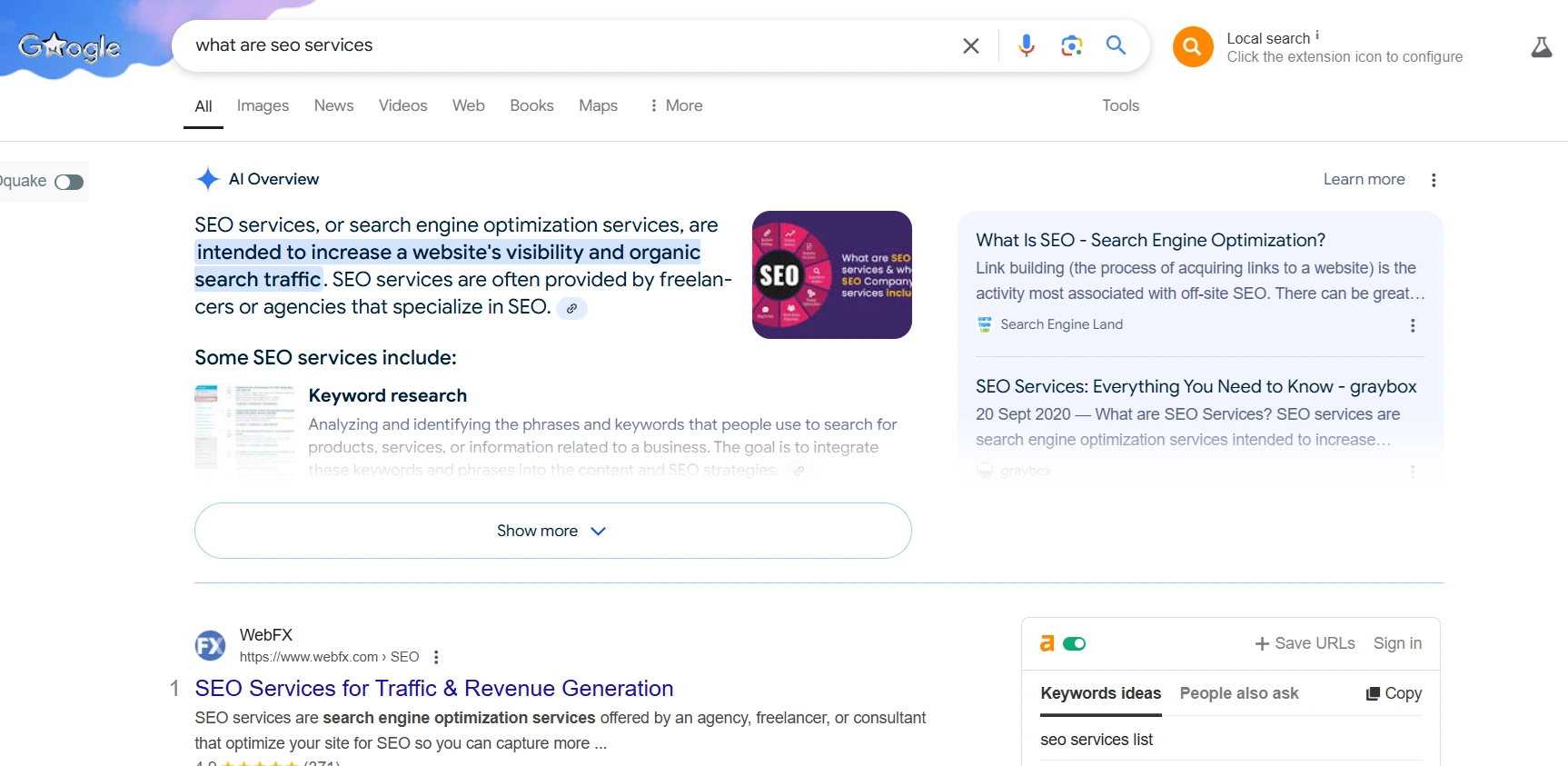
SEO has changed a lot over the years. What used to work—a mix of great content, decent backlinks, and hitting the right keywords—isn’t enough anymore.
Why? Because search behavior has evolved, and so have the tools people use to find answers.
What SEO Was Before 2025
Back in the day, SEO was mostly about Google. You’d focus on ranking high in Google’s search results, and that was the end goal.
The strategies were straightforward:
- Research keywords, both short-tail (e.g., “SEO services”) and long-tail (e.g., “best SEO services for small businesses”).
- Write optimized content that matches search intent.
- Build backlinks to increase your site’s authority.
- Use metadata and on-page SEO to ensure Google understands your content.
It worked well because most searches happened on Google, and users clicked through to websites to find what they needed. Simple, right?
What SEO Is in 2025
Fast forward to today, and SEO looks very different. Sure, ranking on Google is still important, but it’s not the whole picture anymore. In 2025:
- AI overviews dominate: Google’s AI overviews often display the answers users need directly in the search results. These concise summaries reduce the need to click through to a website.
- AI tools like ChatGPT are game-changers: People are turning to generative AI tools for direct answers. These platforms combine data from multiple sources, so being featured in their results is crucial.
- Search competition is everywhere: SEO is no longer just about Google. Platforms like Perplexity and Search GPT are gaining traction, and businesses need to optimize for these tools too.
In short, SEO in 2025 is about meeting your audience wherever they are searching—whether it’s on a traditional search engine or through AI-generated platforms.
It’s not just about being visible; it’s about being featured as the trusted, go-to source of information in these new ecosystems.
This shift is why terms like Generative Engine Optimization (Geo) have emerged, focusing on strategies to rank in AI-powered search environments.
If you want your business to thrive, adapting to this new SEO landscape isn’t optional—it’s essential.
Key SEO Trends in 2025
SEO in 2025 is all about adapting to the rapid evolution of search behavior and technology.
The strategies that dominated in the past—like simple keyword optimization and backlink building—are now just part of a larger, more complex puzzle.
Let’s break down the key trends shaping SEO this year.
1. Generative Engine Optimization (Geo): The New Frontier
Generative Engine Optimization (Geo) is the biggest SEO shift since the rise of mobile search.
It’s all about optimizing your content to appear in AI-generated answers, such as Google’s AI overviews and tools like ChatGPT or Perplexity.
These platforms synthesize information from various sources and present it directly to users, often bypassing traditional web results.
Here’s the kicker: AI tools love specific, concise, and authoritative content. If your website isn’t providing clear answers to user queries, you risk being left out of these AI-driven results.
2. The Rise of Long-Tail Keywords
AI search tools encourage users to ask more detailed, conversational queries. For example:
- Instead of “SEO services,” users might search for “best affordable SEO services for small businesses in Kenya.”
This shift means businesses need to focus on hyper-specific content to rank for these nuanced queries.
The more tailored your content is, the better your chances of being picked up by AI-generated search results.
3. The Importance of Experience-Led Content (EEAT)
Google’s EEAT principles—Experience, Expertise, Authoritativeness, and Trustworthiness—are now more critical than ever.
Here’s what it means for your site:
- Experience: Show that you’ve done what you’re talking about. Videos, case studies, and first-hand accounts are great ways to demonstrate this.
- Expertise: Feature credentials, detailed author bios, and in-depth analysis to build credibility.
- Trustworthiness: Use reviews, testimonials, and transparent content to establish trust with both users and search algorithms.
AI tools and search engines increasingly prioritize content from sources that demonstrate these qualities.
4. Multi-Platform SEO: Beyond Google
In 2025, optimizing for Google is just one piece of the puzzle.
Platforms like Perplexity and ChatGPT are growing fast, and businesses need to ensure their content is discoverable across these ecosystems. For instance:
- Digital PR: Getting your brand featured on third-party websites can increase your chances of appearing in AI-generated results.
- Consistent branding: AI tools value a cohesive brand presence across the web. If your messaging isn’t consistent, you could be overlooked.
5. A Shift in Organic Click Behavior
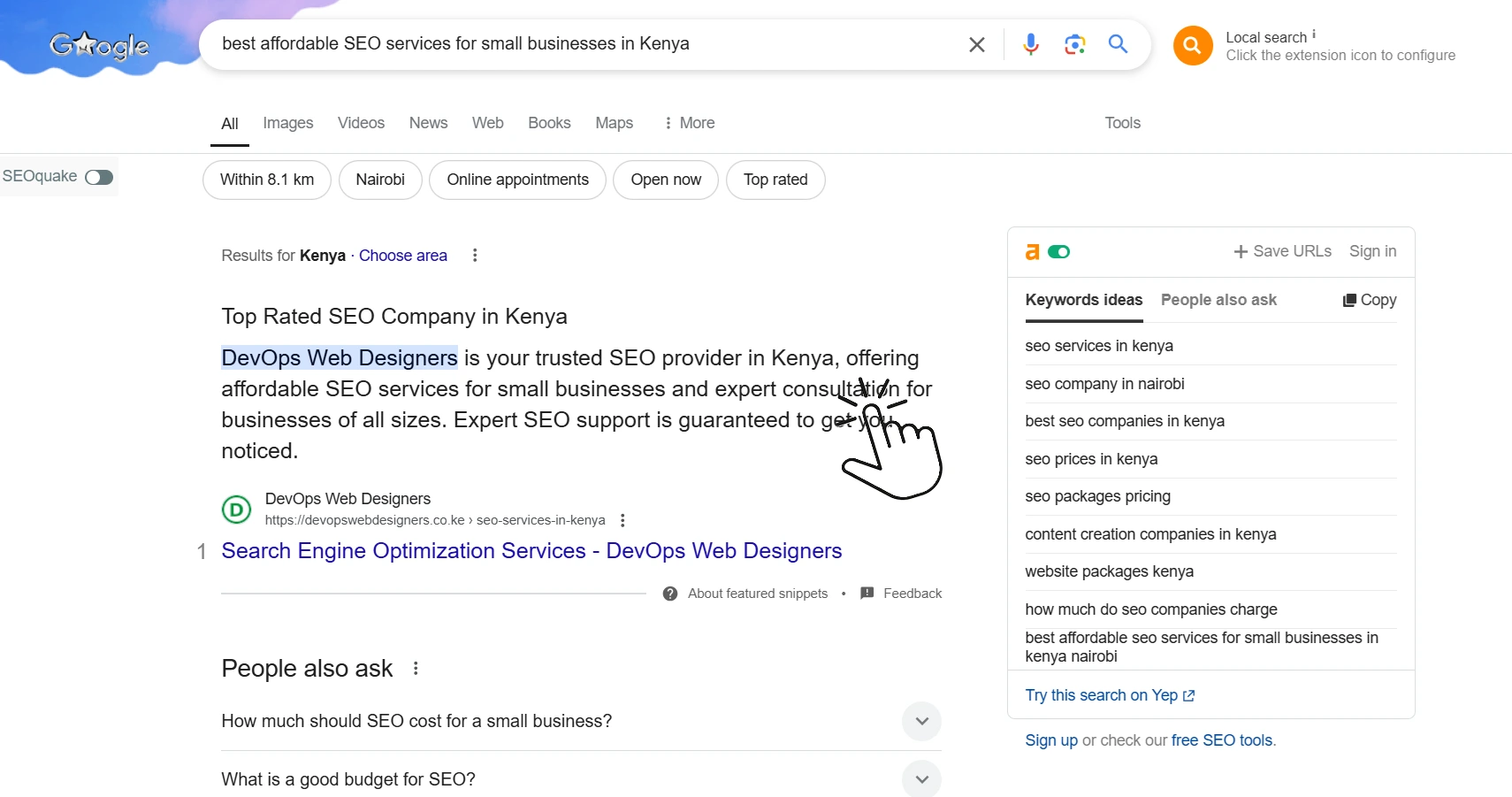
AI overviews and tools provide users with direct answers, which means fewer clicks on traditional search results.
This doesn’t mean SEO is dead—it means businesses need to shift focus:
- Optimize for bottom-of-funnel (BoFu) queries with high intent, like “buy hiking boots online in Nairobi.”
- Ensure your brand is mentioned in top-of-funnel (ToFu) AI-generated answers to maintain visibility during the research phase.
These trends highlight one truth: SEO in 2025 isn’t just about ranking—it’s about building trust, authority, and adaptability in a rapidly changing digital landscape.
How to Optimize for SEO in 2025
The landscape of SEO has shifted, and businesses need to adapt quickly to stay competitive.
Optimizing for both traditional search engines and AI-driven platforms requires new strategies, tools, and a fresh mindset.
Here’s how you can set your SEO game up for success in 2025.
1. Master Generative Engine Optimization (Geo)
Generative Engine Optimization (Geo) focuses on ranking in AI-generated answers, such as Google’s AI overviews and ChatGPT recommendations.
Here’s how to make it happen:
- Structured Content: Write concise, clear answers at the start of your content, followed by detailed explanations. AI tools favor structured, easy-to-digest information.
- Optimize for Long-Tail Keywords: Target conversational and specific queries that users ask AI tools, like “top marketing agencies for startups in Kenya.”
- Repurpose Content: Align your blog posts, FAQs, and social media updates with the formats AI tools prefer.
2. Leverage Natural Language Processing (NLP)
AI platforms use NLP to understand content. Optimizing for NLP helps AI tools identify your content as relevant and reliable:
- Use tools like NeuronWriter or Rankability to analyze competitor content and fill topic gaps.
- Create an outline that covers all relevant subtopics while ensuring depth and uniqueness.
- Avoid keyword stuffing; instead, focus on semantic relevance.
3. Build Experience-Led Content (EEAT)
Search engines and AI prioritize content that demonstrates experience and trustworthiness. Here’s what to do:
- Showcase Expertise: Add author bios, credentials, and links to reputable sources. For instance, a nutrition article authored by a certified dietitian builds credibility.
- Use First-Hand Evidence: Embed videos, testimonials, or case studies to show you’ve walked the talk.
- Maintain Transparency: Highlight reviews, certifications, and partnerships to enhance user trust.
4. Strengthen Brand Authority
Your brand’s online presence plays a crucial role in how AI tools and search engines rank your content:
- Digital PR: Get your business featured on high-authority third-party sites. For example, a tech blog mentioning your product in a roundup can boost visibility.
- Consistent Messaging: Ensure your brand voice and messaging are uniform across all platforms, from your website to your social media.
5. Optimize for Traditional and AI Search Engines
While AI tools are gaining traction, traditional SEO principles still apply:
- On-Page Optimization: Use keywords naturally in titles, headers, and meta descriptions. Don’t forget alt text for images.
- Backlink Strategy: Build quality backlinks consistently. Focus on reputable sites to avoid penalties.
- Technical SEO: Ensure your site is mobile-friendly, fast, and secure (HTTPS).
6. Monitor and Adapt
The only constant in SEO is change. Regularly analyze your performance and tweak your strategies:
- Track AI Rankings: Use tools to monitor how your content performs on platforms like ChatGPT and Perplexity.
- Analyze User Behavior: Watch how users interact with your site and content, and adjust for better engagement.
- Experiment: Try new formats like interactive infographics or AI-driven tools embedded on your website.
SEO in 2025 is about being versatile, data-driven, and user-focused.
Whether it’s generative AI or Google, the goal remains the same: deliver the best value to your audience. But no strategy is without its challenges.
Challenges in SEO for 2025
- Reduced organic clicks. AI tools provide direct answers to user queries, leading to lower traffic from traditional search results.
- Fierce competition for AI visibility. Limited slots in AI-generated responses make it harder for businesses to stand out.
- Balancing traditional and AI SEO. Companies must manage dual optimization strategies for search engines and generative AI platforms.
- Inconsistent brand messaging. Mismatched content across platforms can weaken visibility in AI-generated results.
- Mastering AI tools. Adopting generative SEO and NLP techniques requires significant learning and investment.
- User skepticism of AI. Inaccurate AI-generated answers can damage trust and harm brand reputation.
Do you want to grow your traffic by 300% or more with SEO 2025 in Kenya?
SEO in 2025 is a game-changer, blending traditional strategies with cutting-edge AI optimization. Navigating this evolving landscape can be challenging, but you don’t have to do it alone.
Our team of SEO experts specializes in both traditional and generative SEO strategies, ensuring your business stays ahead of the competition.
Let us help you optimize for AI tools, boost your visibility, and dominate the search landscape.
Schedule a consultation with our experts today and take the first step toward transforming your digital presence.
